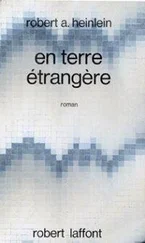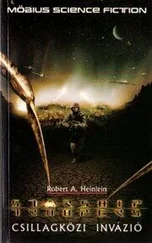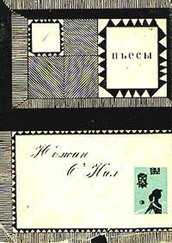Robert Heinlein - Beyond This Horizon
Здесь есть возможность читать онлайн «Robert Heinlein - Beyond This Horizon» весь текст электронной книги совершенно бесплатно (целиком полную версию без сокращений). В некоторых случаях можно слушать аудио, скачать через торрент в формате fb2 и присутствует краткое содержание. Жанр: Фантастика и фэнтези, на английском языке. Описание произведения, (предисловие) а так же отзывы посетителей доступны на портале библиотеки ЛибКат.
- Название:Beyond This Horizon
- Автор:
- Жанр:
- Год:неизвестен
- ISBN:нет данных
- Рейтинг книги:4 / 5. Голосов: 1
-
Избранное:Добавить в избранное
- Отзывы:
-
Ваша оценка:
- 80
- 1
- 2
- 3
- 4
- 5
Beyond This Horizon: краткое содержание, описание и аннотация
Предлагаем к чтению аннотацию, описание, краткое содержание или предисловие (зависит от того, что написал сам автор книги «Beyond This Horizon»). Если вы не нашли необходимую информацию о книге — напишите в комментариях, мы постараемся отыскать её.
Beyond This Horizon — читать онлайн бесплатно полную книгу (весь текст) целиком
Ниже представлен текст книги, разбитый по страницам. Система сохранения места последней прочитанной страницы, позволяет с удобством читать онлайн бесплатно книгу «Beyond This Horizon», без необходимости каждый раз заново искать на чём Вы остановились. Поставьте закладку, и сможете в любой момент перейти на страницу, на которой закончили чтение.
Интервал:
Закладка:
Mordan chuckled.
"Although we have never met," Mordan said, "you and the gene pattern you carry have naturally been of interest to me."
"I suppose so. I fall within the jurisdiction of your office."
"You misunderstand me. I cannot possibly take a personal interest in every one of the myriad "zygotes in this district. But it is my duty to conserve the best strains. I have been hoping for the past ten years that you would show up at the clinic, and ask for help in planning children."
Hamilton's face became completely expressionless. Mordan ignored it and went on. "Since you did not come in voluntarily for advice, I was forced to ask you to visit me. I want to ask you a question: Do you intend to have children any time soon?"
Hamilton stood up. "This subject is distasteful to me. May I have your leave, sir?"
Mordan came to him and placed a hand on his arm. "Please, Felix. No harm can be done by listening to me. Believe me, I do not wish to invade your private sphere-but I am no casual busybody. I am your moderator, representing the interests of all of your own kind. Yours among them."
Hamilton sat down without relaxing. "I will listen."
"Thank you. Felix, the responsibility of improving the race under the doctrines of our republic is not a simple one. We can advise but not coerce. The private life and free action of every individual must be scrupulously respected. We have no weapon but cool reason and the appeal to every man's wish that the next generation be better than the last. Even with co-operation there is little enough we can do-in most cases, the elimination of one or two bad characteristics, the preservation of the good ones present. But your case is different."
"How?"
"You know how. You represent the careful knitting together of favorable lines over four generations. Literally tens of thousands of gametes were examined and rejected before the thirty gametes were picked which constitute the linkage of your ancestral zygotes. It would be a shame to waste all that painstaking work."
"Why pick on me? I am not the only result of that selection. There must be at least a hundred citizens descended from my great gross grandparents. You don't want me-I'm a cull. I'm the plan that didn't pan out. I'm a disappointment."
"No," Mordan said softly, "no, Felix, you are not a cull. You are the star line."
"Huh?"
"I mean it. It is contrary to public policy to discuss these things, but rules were made to be broken. Step by step, back to the beginning of the experiment, your line has the highest general rating. You are the only zygote in the line which combines every one of the favorable mutations with which my predecessors started. Three other favorable mutations showed up after the original combinations; all of them are conserved in you."
Hamilton smiled wryly. "That must make me still more of a disappointment to you. I haven't done very much with the talents you attribute to me, have I?"
Mordan shook his head. "I have no criticism to make of your record."
"But you don't think much of it, do you? I've frittered away my time, done nothing more important than design silly games for idle people. Perhaps you geneticists are mistaken in what you call 'favorable characteristics.'"
"Possibly. I think not."
"What do you call a favorable characteristic?"
"A survival factor, considered in a broad sense. This inventiveness of yours, which you disparage, is a very strong survival factor. In you it lies almost latent, or applied to matters of no importance. You don't need it, because you find yourself in a social matrix in which you do not need to exert yourself to stay alive. But that quality of inventiveness can be of crucial importance to your descendants. It can mean the difference between life and death."
"But-"
"I mean it. Easy tunes for individuals are bad times for the race. Adversity is a strainer which refuses to pass the ill equipped. But we have no adversity nowadays. To keep the race as strong as it is and to make it stronger requires careful planning. The genetic technician eliminates in the laboratory the strains which formerly were eliminated by simple natural selection."
"But how do you know that the things you select for are survival factors? I've had my doubts about a lot of them."
"Ah! There's the rub. You know the history of the First Genetic War."
"I know the usual things about it, I suppose."
"It won't do any harm to recapitulate. The problem those early planners were up against is typical-"
The problems of the earliest experiments are typical of all planned genetics. Natural selection automatically preserves survival values in a race simply by killing off those strains poor in survival characteristics. But natural selection is slow, a statistical process. A weak strain may persist-for a time-under favorable conditions. A desirable mutation may be lost-for a time-because of exceptionally unfavorable conditions. Or it may be lost through the blind wastefulness of the reproductive method. Each individual animal represents exactly half of the characteristics potential in his parents.
The half which is thrown away may be more desirable than the half which is perpetuated. Sheer chance.
Natural selection is slow-it took eight hundred thousand generations to produce a new genus of horse. But artificial selection is fast, if we have the wisdom to know what to select for.
But we do not have the wisdom. It would take a superman to plan a superman. The race acquired the techniques of artificial selection without knowing what to select.
Perhaps it was a bad break for mankind that the basic techniques for gene selection were developed immediately after the last of the neo-nationalistic wars. It would be interesting to speculate whether or not the institution of modern finance structure after the downfall of the Madagascar System would have been sufficient to maintain peace if no genetic experiments had been undertaken. But pacifist reaction was at its highest point at this time; the technique of para-ectogenesis was seized on as a God-given opportunity to get rid of war by stamping it out of the human spirit.
After the Atomic War of 1970, the survivors instituted drastic genetic regulations intended for one purpose alone-to conserve the Parmalee-Hitchcock recessive of the ninth chromosome and to eliminate the dominant which usually masks it-to breed sheep rather than wolves.
It is wryly amusing that most of the "wolves" of the period-the Paramlee-Hitchcock island is recessive; there are few natural "sheep"-were caught by the hysteria and co-operated in the attempt to eliminate themselves. But some refused. The Northwest Colony eventually resulted.
That the Northwest Union should eventually fight the rest of the world was a biological necessity. The outcome was equally a necessity and the details are unimportant. The "wolves" ate the "sheep."
Not physically in the sense of complete extermination, but, genetically speaking, we are descended from "wolves," not "sheep."
"They tried to breed the fighting spirit out of men," Mordan went on, "without any conception of its biological usefulness. The rationalization involved the concept of Original Sin. Violence was 'bad'; non-violence was 'good.'"
"But why," protested Hamilton, "do you assume that combativeness is a survival characteristic? Sure-I've got it; you've got it; we've all got it. But bravery is no use against nuclear weapons. What real use is it?"
Mordan smiled. "The fighters survived. That is the final test. Natural selection goes on always, regardless of conscious selection."
"Wait a minute," demanded Hamilton. "That doesn't check. According to that, we should have lost the Second Genetic War. Their 'mules' were certainly willing to fight."
"Yes, yes," Mordan agreed, "but I did not say that combativeness was the only survival characteristic. If it were, the Pekingese dog would rule the earth. The fighting instinct should be dominated by cool self-interest. Why didn't you shoot it out with me last night?"
Читать дальшеИнтервал:
Закладка:
Похожие книги на «Beyond This Horizon»
Представляем Вашему вниманию похожие книги на «Beyond This Horizon» списком для выбора. Мы отобрали схожую по названию и смыслу литературу в надежде предоставить читателям больше вариантов отыскать новые, интересные, ещё непрочитанные произведения.
Обсуждение, отзывы о книге «Beyond This Horizon» и просто собственные мнения читателей. Оставьте ваши комментарии, напишите, что Вы думаете о произведении, его смысле или главных героях. Укажите что конкретно понравилось, а что нет, и почему Вы так считаете.










